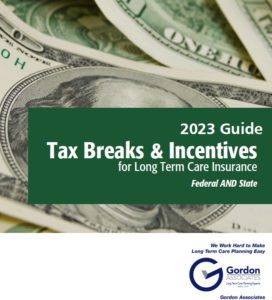When it comes to Long Term Care Insurance, one question we are often asked is “at what age is it best to apply for LTCI?” Many clients wonder if they’re “too young” or “too old” to obtain coverage and there are two schools of thought on this.
The first being the conventional approach that younger is better. The other takes a more holistic perspective, considering the individual’s financial situation as well as his/her age. Generally, we find that discussing both approaches gives clients the information they need to make the right decision for themselves.
Conventional Wisdom Regarding Age and LTCI
From a strict insurance standpoint, the younger a person is, the better.
That’s because LTCI is medically underwritten, and an individual’s health, age and gender will play a large role in determining 1) whether they’re eligible for coverage, 2) what their health rating will be and finally, 3) their premium.
In most cases, health declines as we age. Not surprisingly, the number of applicants who are declined LTCI coverage increases with age, while the number who qualify for good health discounts also declines with age.
Furthermore, the longer they wait, the higher LTCI premiums are likely to be. Like health insurance, LTCI premiums will most likely increase in the future.
And of course, once someone purchases an LTCI policy, they’ve protected their assets and have peace of mind. While most people find themselves requiring long term care in their 70s and 80s, many 60 year-olds suffer unexpected accidents and illnesses that require long term care, too.
So, when is a good age to purchase LTCI? The simple answer is as soon as possible, however, there is more to this story.
The Holistic Approach to Age and LTCI: Consider the Client’s Financial Situation
Long term care planning is a critical part of the financial planning picture. We believe that when it comes to age and LTCI, the right time to purchase is only after other financial priorities have been addressed.
We ask clients these four questions:
Are You Saving for Retirement?
According to a recent study, an unsettling 41% of families where the head of the household is between age 35-64 will run out of money during retirement. Before someone thinks about purchasing LTCI, it’s important to have an adequate retirement plan in place. Perhaps they’re contributing to a 401K plan through their employer; perhaps they have a personal retirement plan. Either way, we believe that establishing a good retirement plan takes precedence over obtaining LTCI.
Is Your Credit Card Debt Manageable?
If a client has mounting credit card debt, we encourage them to get it under control before taking on LTCI premiums. We’re not talking about a mortgage and car payment, but rather a skyrocketing burden of debt. Otherwise, the interest due will only continue to balloon, making it even harder to pay off.
Do You Have College Savings Accounts in Place?
Right now, the average, four year cost of in-state public college is a staggering $101,160—and that number is rising. If a client has college-bound children, our recommendation is to make sure they have a college savings plan in place (a 529 plan or other savings vehicle) before they turn their focus to LTCI.
Do You Have an Emergency Nest Egg?
Sometimes unexpected things happen; such as layoffs, medical emergencies and property loss. Many experts recommend saving the equivalent of three to six months for expenses. Yet according to a recent study, 45% of Americans don’t have enough savings to last three months. That’s why we advise our clients to build their emergency nest egg before purchasing LTCI.
There’s No “Good Age” to Buy LTCI
From an insurance standpoint, younger applicants are more likely to be accepted for coverage and secure lower rates, but it only makes sense to purchase LTCI if they have their financial ducks in a row. (Interestingly, in 2018, the average age of policy issue was 56—a number that keeps trending lower.)
Keep in mind, every LTCI carrier sets its own underwriting standards base. Some accept certain health conditions while others may not; and each sets the terms of its rates and discounts. At Gordon Associates, we work with multiple highly rated LTCI carriers so we can match our clients to the best carrier based on their age, health and financial comfort zone to come up with the best plan design. If you’d like more information, please contact us.


 To help determine if long-term care (LTC) insurance is right for you, we are offering a FREE informational guide. This is a comprehensive booklet that will answer many of your questions about LTC and assist you with your health care planning.
To help determine if long-term care (LTC) insurance is right for you, we are offering a FREE informational guide. This is a comprehensive booklet that will answer many of your questions about LTC and assist you with your health care planning. To help determine if long-term care (LTC) insurance is right for you, we are offering a FREE informational guide. This is a comprehensive booklet that will answer many of your questions about tax breaks and incentives for LTCI for federal and state taxes.
To help determine if long-term care (LTC) insurance is right for you, we are offering a FREE informational guide. This is a comprehensive booklet that will answer many of your questions about tax breaks and incentives for LTCI for federal and state taxes.